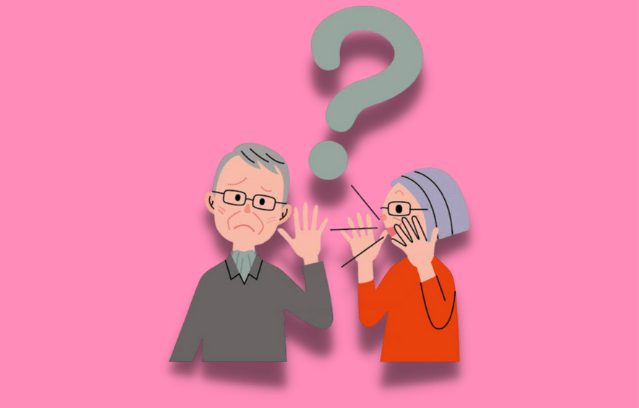
The inability to hear sounds clearly in someone with a hearing impairment. Any portion of the hearing mechanism could have been damaged, or it could have developed improperly, leading to this. Normal speech and language development depend on the ability to hear. A youngster picks up language by listening to other people in the family and their environment speak.
As per many ENT Specialists, an unseen impairment is a deafness. Identification of a deaf child or person requires keen observation. The whole development of a kid is severely hampered by deafness at birth or in the early years of life. Depending on the type, age at onset, and severity of the hearing impairment, these impacts change.
Causes of Hearing Impairment
There are many Otolaryngologists who suggest different causes for the loss of hearing or hearing impairment. Here are some of the reliable causes of hearing impairment that will help you in getting some valuable tips from an ENT doctor.
Hearing loss is frequently a result of loud noises. This exposure can occasionally be rapid and momentary. Hearing loss can result from loud concerts or being beside a gun explosion.
Numerous professions are impacted by prolonged noise exposure. The most vulnerable groups include farmers, construction workers, musicians, and service members. The most common ailment is occupational hearing loss.
The following are additional risk factors that increase your risk of hearing loss:
- Congenital illnesses like cytomegalovirus (CMV).
- Strokes, high blood pressure (hypertension), and coronary artery disease.
- Even something as straightforward as sticking a cotton swab too far into the ear might cause damage or pain.
- Diabetes.
- Ear infections, earwax accumulation, or an eardrum rupture.
- Being exposed to chemicals
- Hearing loss in the family history
- Drugs for the treatment of cancer.
What signs of hearing loss are there?
Gradual hearing loss is possible. You might not even be conscious of your hearing loss. Most persons with hearing loss don’t experience any pain. Instead, you may see that:
- Frequently ask people to repeat themselves.
- Can’t follow a discussion or believes that other people are mumbling, especially over the phone or in a restaurant.
- Unable to hear some high-pitched sounds, such as bird songs.
- Radio or TV volume has to be increased.
- An earache, ringing in the ears (tinnitus), soreness, a fluid sensation, or pressure inside the ear are all possible symptoms.
- Experience vertigo or balance issues.
Child hearing loss symptoms include:
- Not being startled by loud noises
- Not turning when you call the child’s name or when you hear certain sounds.
What types of Hearing Impairment are there?
You may just have a unilateral hearing loss in one ear or bilaterally (bilateral). The kind depends on where the hearing system is damaged.
The following types of hearing impairment are there-:
- Conductive: Something prevents sound from traveling through the middle or outer ear (area containing the three tiny ear bones: malleolus, incus, and stapes). The obstruction could be earwax, fluid, or an ear infection. It can be challenging to hear subtle sounds and loud ones simultaneously. Surgery and medicine frequently assist.
- Sensorineural: Cochlea, the inner ear, or the auditory nerve are both impacted by hearing loss. The causes of it include frequent illnesses, loud noises, or aging. Congenital problems (existing at birth), trauma during labor, head injuries, or infections can make children more susceptible to this type. A sensorineural hearing loss is frequently irreversible. Hearing aids and other assistive technologies can be useful.
- Mixed: Some persons experience both sensorineural and conductive hearing loss as per many of the ENT doctors or ENT specialists. Mixed hearing loss can be brought on by a head injury, an illness, or an inherited disorder. Both types of hearing loss could require medical attention.
If you are experiencing any of the symptoms, then it’s the right time for you to seek online consultation and start with the process of healing from hearing impairment. There are ENT specialists who can assist you in this process.
What distinguishes Hearing Impairment from deafness?
Even if they have hearing loss, a person can still hear noises clearly enough to take part in conversations. Through additional therapies or the use of hearing aids, they can enhance their hearing capacity.
A deaf person has very little to no hearing ability. Devices and hearing aids are ineffective. Deaf people can communicate using sign language. The causes of hearing impairment is distinguished from deafness and for more clarity on this, you can seek online consultation easily.
Who may suffer from hearing impairment?
All ages, genders, and ethnicities are impacted by hearing loss. One in three adults over the age of 65 and half of those over the age of 75 experience hearing loss. Presbycusis is the term for hearing loss brought on by aging.
Infants and kids are also affected by hearing loss. An estimated 2 out of every 1,000 newborns have some form of hearing loss. One of the most prevalent birth abnormalities in children is hearing loss. Congenital conditions are illnesses that exist from birth.
What medical professionals identify and How do they treat hearing Impairment?
If you think you could have hearing loss, consult a:
- Audiologist: These experts examine and evaluate your hearing to determine your specific listening and communication needs. They assist in selecting the proper hearing aids and other hearing device technologies, which frequently involve hearing aids (cochlear implants and osseointegrated implants). The majority of audiologists are audiology doctors (Au.D.). Medical professionals are not audiologists.
- Specialists in hearing aids: After passing a state exam, these professionals are granted licenses to perform hearing exams. You can get a hearing aid fitted there.
- Otolaryngologists are medical professionals that specialize in the ear, nose, and throat (ENT). In order to address ear issues and hearing loss, they undertake procedures and give drugs.
For all these, you can also take the help of online consultation and through this you will get some of the best ENT doctors for your aid to hearing Impairment or hearing loss.
What is the management or treatment of hearing loss?
Treatments for hearing loss are frequently based on the kind and severity of hearing loss.
Treatments include of:
- Hearing aids: These tools aid in the recovery of hearing. Hearing aids are devices that amplify sound and are worn on or inside the ear. To cure inner ear hearing loss, medical professionals surgically insert cochlear implants into the inner ear.
- Rehabilitation for hearing loss, also known as audiologic rehabilitation, aids in your ability to adapt to hearing loss and hearing aids. A therapist can also teach you how to read lips and use visual signals to enhance communication.
- Listening aids: Aids can make it easier to hear the phone, the TV, or computer movies.
- Medication: Antibiotics may help hearing loss brought on by ear infections. After being exposed to loud noise, cochlear hair cells may expand, however corticosteroids can reduce this. Your doctor might recommend a different treatment if prescription drugs are the cause of your hearing loss.
- Surgery: The eardrum may be surgically implanted with ear tubes. Chronic middle ear infections that cause hearing loss are treated with ear tubes. Additionally, providers carry out procedures to remove tumors, correct birth anomalies, and implant cochlear devices.
These treatments can easily help you in recovering from hearing impairment. Whenever you notice the causes of hearing impairment, then seek the best guidance either in the form of an ENT specialist or take help from any of the online consultations which have a positive review.

